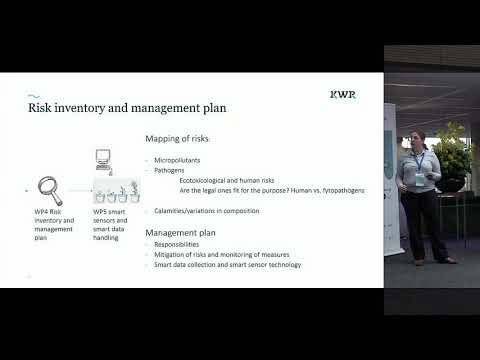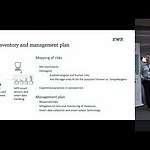Previous research has shown the possibility of growing tomatoes with effluent that has been treated to be used as irrigation water, without loss of crop quality and yield. However, to further ensure minimal safety risks for people and plants, quality assurance of irrigation water is required. It is expected that this will also support the acceptance of treated effluent as a source for irrigation throughout the chain from grower to consumer. This project carries out a risk inventory and develops a monitoring plan, supported by the relevant stakeholders, that enables the next steps in greenhouse horticulture. To this end, a guideline is developed together with stakeholders in the supply chain, growers, water companies, traders, etc., that describes the conditions that treated effluent (but also wastewater from other sources) must meet to be used as irrigation water. These conditions are both of technological as well as of legislative nature. The continuous measurement of chemical markers, the use of sensors, non-invasive measurement techniques, and decision support systems can be part of the monitoring strategy. This way, more clarity about the assurance of the quality of the water is developed to propose effluent as a technologically feasible – but most of all safe – alternative irrigation source.
In this presentation, an overview of the prevailing legislation and regulations for the use of effluent in greenhouse horticulture is given. This overview includes requirements for water quality parameters to guide tailor-made reprocessing of the effluent for safe cultivation with recycled irrigation water. The prevailing legislations require the quality to be dependent on the risk for (human) health. Therefore, a risk inventory and a framework for a monitoring plan are also made, including smart sensors and data processing for the safe application of irrigation water. By involving the entire chain in stakeholder meetings, important steps are made towards a broad acceptance of the use of effluent as a safe source of irrigation water; from grower to consumer.
Source: de Baat, M. 2021. Acceptance and quality assurance of safe irrigation water from municipal wastewater. Quality assurance, Biodegradation and tools for its assessment. Risk & Resilience. AIWW 2021.
In-person Conference
Source: YouTube - Acceptance and quality assurance of sage irrigation water

